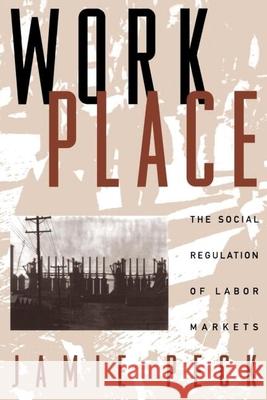Work-Place: The Social Regulation of Labor Markets » książka
Work-Place: The Social Regulation of Labor Markets
ISBN-13: 9781572300446 / Angielski / Miękka / 1996 / 320 str.
Challenging the prevailing idea that labor markets are governed by universal economic processes, this significant work argues instead that labor markets develop in tandem with social and political institutions, and thus function in locally specific ways. Focusing on the complex social processes that lie at the heart of the labor market--those of labor control, labor reproduction, and labor regulation--the author develops an innovative political economy approach that is sensitive to the ways these processes are locally constituted. He also demonstrates how the geographically uneven development of labor markets is currently associated with a deterioration of working conditions, the trading away of workers' rights and benefits, and a downward spiral in labor standards. Drawing on a critical reading of segmentation and regulation theory, which calls for a simultaneous analysis of economic processes and social institutions, the first part of the book establishes a theoretical case for spatializing labor market theory. The author shows how labor market processes are transformed by the way they operate through space and in place, drawing attention to systemic spatial variability in their structures, dynamics, and modes of social regulation. Presenting illuminating empirical case studies, the second part of the book illustrates some of the ways in which the author's approach to labor market theory can be put to work. Chapters take an in-depth look at skill formation in the context of labor market flexibility, industrial homework and labor market restructuring, workfarist tendencies in labor regulation, and neoliberalism and the geographic reconstitution of labor relations.











